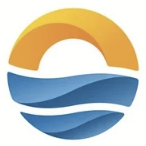Introduction
Immanuel Kant Baltic Federal University, also known as Immanuel Kant Baltic Federal University, is located in Kaliningrad, Russia. It is one of the ten federal universities in Russia. It is named after the German philosopher Immanuel Kant and is the largest education, science and cultural center in western Russia.
Overview
Student size: As of January 2024, there are more than 12,000 students, 430 doctoral students, and foreign students from 51 countries.
Faculty: More than 1,400 faculty and staff, 740 professors.
History
Its history can be traced back to the University of Königsberg founded during the Duchy of Prussia. In July 1947, the Soviet Union established the Kaliningrad State Institute of Education on the basis of the University of Königsberg; in July 1964, the Kaliningrad Teachers College was renamed Kaliningrad State University; in May 2005, In February, Kaliningrad State University was renamed Immanuel Kant Russian State University; in 2011, the university was upgraded to a federal-level university and renamed Immanuel Kant Baltic Federal University.
Founded in 1947, it has a longer history if we count from its predecessor, the University of Königsberg.
School Strength
Teaching Quality: As one of the higher education and research centers in the northwest region of the Russian Federation, it has high teaching quality and provides more than 300 educational programs covering secondary, vocational, higher education, continuing education and post-university education. It focuses on cultivating students' practical ability and innovative thinking, and graduates have strong competitiveness in the job market.
Scientific Research Achievements: In 2008, a science and technology park was established, with 30 scientific research directions, 236 researchers, with an average age of 38 years old and a degree holding rate of 74.8%; it has 4 paper boards and publishes 11 journals, of which 4 are ranked in the "Science Magazine"; in addition, there are 38 scientific divisions in 49 fields such as nanosystem industry, information systems, life sciences, environmental utilization, transportation and space systems, etc. The university conducts scientific research-related work in various research fields.
International Exchange: The university has a high level of international cooperation and has established cooperative relations with more than 200 universities around the world. It actively carries out projects such as student exchange, joint training, and scientific research cooperation to enhance the internationalization level of the university and the international vision of students.
Nature of the institution
Public research university.
Educational philosophy
Committed to inheriting and developing the academic tradition of the University of Albertina in Königsberg, while constantly innovating, focusing on cultivating students' innovative spirit, practical ability and international vision, and striving to cultivate outstanding professional talents for Russia and the world, and contribute to the development of the country and society.
Key laboratories and disciplines
Key laboratories: The university has scientific research facilities such as science and technology parks to provide good conditions for teachers and students to conduct scientific research.
Key disciplines: Physics, mathematics, humanities and other disciplines are strong, and philosophy is ranked between 101-105 in the 2023 QS World University Rankings, between 801-850 in the 2023 QS World University Rankings, and between 1201-1500 in the World University Rankings. =1.
Faculty
It consists of 13 colleges, including the Institute of Higher Technology, the Institute of Management and Territorial Development, the Institute of Medicine and Life Sciences, the Faculty of Education and Humanities, the University College, the Higher School of Computer Science and Artificial Intelligence, the Higher School of Cyber-Physical Systems, the Higher School of Nanotechnology and Engineering, the Higher School of Business and Entrepreneurship, the Higher School of Law, the Higher School of Space Development and Reception, the Higher School of Life Systems, the Higher School of Medicine, the Medical School, the Higher School of Communications and Creative Industries, the Higher School of Higher Education and Psychology, the Higher School of Languages, the Higher School of Philosophy, History and Social Sciences, and the Higher School of Physical Education.
Ranking
QS World University Rankings 2023: between 801-850.
World University Rankings 2023: between 1201-1500.
QS Emerging Europe and Central Asia Rankings 2022: 135.
Expenses
Preparatory course: 196,000 rubles/school year.
Undergraduate: 157,000 - 288,000 rubles/school year.
Master: 156,000 - 311,000 rubles/school year.
Doctoral: 182,000 - 247,000 rubles/school year.
Medical: 223,000 - 301,000 rubles/school year.
Campus
Teaching facilities: There are 23 educational buildings, 20 sports facilities, 13 dormitories, 2 public use centers, as well as libraries, botanical gardens, mechanical manufacturing industry training centers, Boeing 737-ng driving training grounds, marine geography basic teaching and research rooms, printing houses, etc., which greatly meet the students' learning, living, internship, leisure and entertainment needs.
Dormitory conditions: The new campus dormitory area reaches 35,000 square meters, which can accommodate 2,500 people, and is equipped with fitness areas, food areas and leisure spaces.
Campus environment: The new campus is located on Nevsky Street in Kaliningrad, covering an area of 29 hectares, with two academic and administrative buildings, sports facilities and university dormitories, as well as 1,500 There are conference halls with 100 seats and public activity squares, and the campus environment is beautiful and the cultural atmosphere is strong.
-

Peter the Great St.Petersburg Polytechnic University
-
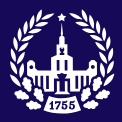
Moscow State University M. V. Lomonosov
-
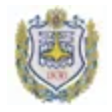
Bauman Moscow State Technical University
-
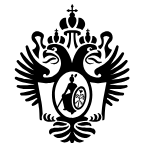
St. Petersburg State University
-
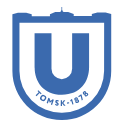
Tomsk State University
-
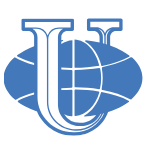
Peoples' Friendship University of Russia
-
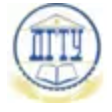
Don State Technical University
-
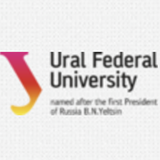
Ural Federal University
-

Moscow Institute of Physics and Technology
-
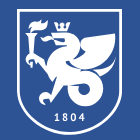
Kazan Federal University
-

Mesoamerican University
-

Istmo University
-

Mariano Galvez University of Guatemala
-

Regional University of Guatemala
-

Galileo University
-

Francisco Marroquín University
-

Rafael Landívar University
-

University of the Valley of Guatemala
-

University of San Carlos of Guatemala
-

Technological Institute of Tlaxcala Plateau
-

Golfo University
-

Technological University of South Sonora
-

Technological University of Huejotzingo
-

Tizimín Institute of Technology
-

Chilpancingo Institute of Technology

